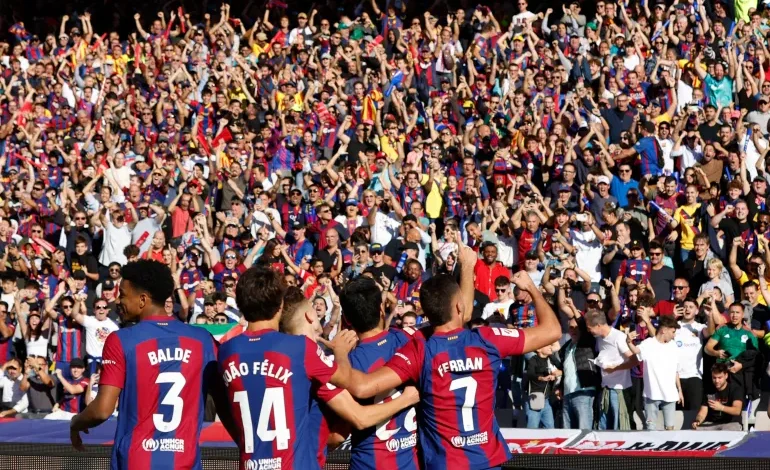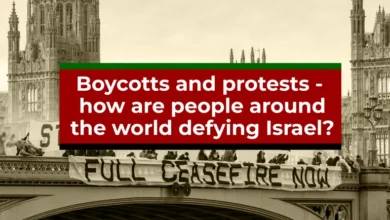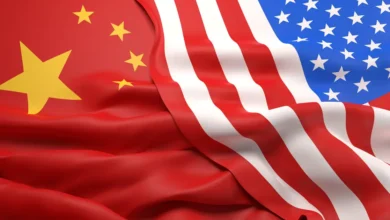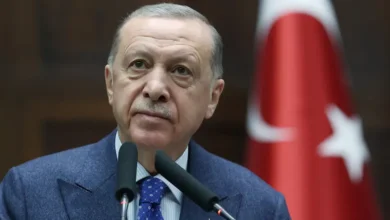UEFA set to ‘lose power’ but will football’s Super League take off?

European football’s governing body UEFA is set to “lose a lot of power” in the wake of a recent court ruling on a breakaway league, experts have said, as the continental body’s long-standing monopoly on the running of the sport faces a new challenge.
The European Court of Justice (ECJ) ruled that the Union of European Football Associations (UEFA) and global governing body the Federation Internationale de Football Association (FIFA) violated European Union laws by preventing the formation of the Super League in 2021, when 12 of Europe’s premier football clubs including Manchester United and Bayern Munich announced they had signed up for the planned league, sending shock waves through the sport.
UEFA and FIFA were deemed to have abused their dominant position by prohibiting clubs from participating in the “closed” league, as per the initial proposal.
Following protests from fans, widespread condemnation and a stark warning from UEFA that clubs and players who took part in it would be barred from competitions like the World Cup, the project crashed.
Within 48 hours, nine of the 12 rebel clubs – including six from England’s Premier League – backed down and the project collapsed. The league’s promoters, A22 Sports Management, launched a legal challenge through Spanish courts, which referred the question to the Luxembourg-based ECJ.
Judgement on UEFA’s ‘abuse of power’
Sports management and economic experts believe the court’s “very strong judgement” proves that UEFA’s long-standing monopoly on the running of the game on the continent can be challenged, but the fate of the breakaway project remains uncertain.
“It’s a judgement on the abuse of power by UEFA,” JD Tena, a senior lecturer in sports business and management at the University of Liverpool, told Al Jazeera.
“It’s difficult to forecast what will happen in the future, but it’s not difficult to figure out that UEFA will lose a lot of power in terms of organising and taking the reigns of competitions.”
UEFA, which has organised pan-European competitions for nearly 70 years, considers the Super League as a threat to its flagship Champions League and has launched a major reform of the competition.
UEFA has said ECJ’s ruling does not signify an endorsement or validation of the Super League, but addressed a “pre-existing shortfall” in UEFA’s framework, which it said it had subsequently corrected in June 2022.
“UEFA remains resolute in its commitment to uphold the European football pyramid, ensuring that it continues to serve the broader interests of society,” UEFA said in a statement.
‘Reputational damage’
While Super League organisers were excited about the unexpected reprieve by the ECJ, major leagues and clubs moved to support the status quo.
Premier League club Manchester United were one of the first to say they remained committed to playing in competitions run by UEFA, as did Bundesliga champions Bayern Munich.
France’s Ligue de Football Professionnel (LFP) said it “unequivocally supports” competitions organised by UEFA, while the European Club Association, which represents nearly 500 clubs across the continent, said the football world had “moved on from the Super League years ago”.
Spanish La Liga’s Real Madrid and Barcelona are the only clubs that have shown strong support for the proposed league, which analysts say suffered considerable “reputational damage” in 2021.
“For the Super League or any other breakaway league to be alive, there needs to be a legal and financial case for it. And I think the financial case is starting to look slightly shaky,” Christina Philippou, who teaches accounting, economics and finance at the University of Portsmouth, told Al Jazeera.
Philippou believes that despite interest from several big clubs, the league’s image has taken a blow.
“Potential partners will need big reassurances and will weigh up the risk,” she said.
Sports management expert Tena believes the Super League proposal is “very interesting”, but it is difficult to predict which clubs would be interested in joining it.
“This is like a poker game. You don’t know what is the real feeling about it,” Tena said.
“Many of these clubs that now are against the Super League were involved in the initial process – they suddenly moved out when they were threatened by UEFA. So we don’t know if, in a free environment, they will freely choose to join the Super League.”
New format
After ECJ’s ruling, A22 announced a rebooted version of the Super League, introducing promotion and relegation that was missing in its initial proposal. It also attempted to win over fans by promising free-to-watch matches.
The proposed format for the men’s competition includes 64 teams in three leagues – Star, Gold and Blue. The Star and Gold Leagues will have 16 clubs each while the Blue League has 32 clubs. The women’s competition would have two leagues of 16 clubs each.
However, the revamped structure and lure of free matches may not be enough to enthuse football fans.
“It does feel a bit like flogging a dead horse in terms of pursuing the European Super League idea,” Mark Middling, a senior lecturer in accounting at Northumbria University, said of the new proposals.
“The new format, still, seems too much of a trade-off compromise. If you’re in that Star League at the top, it is still going to be very difficult for that team to be relegated from European football.
“So even though a team might be doing poorly in their domestic league, they could still be at the upper echelons of the European league as far as I can work out. It almost takes away the romanticism of football.”
Tena, on the other hand, believes the Super League could attract fans and sponsors, as the format would include matches involving big clubs from day one.
“People are afraid of new things. When the European Cup, which is now the Champions League, was created, people were afraid that this was going to destroy the domestic leagues. But in the end, it became a great idea,” he said.
‘Not going to be accepted by fans’
The ECJ has said its judgement does not necessarily mean the Super League project must be approved and has left it to the Spanish courts to decide.
Should it get a green light from the courts, Philippou expects the breakaway league to face financial challenges, especially in commercial and broadcasting rights.
“Broadcasting rights tend to be built up,” she said. “In a new league, organisers are going to have some issues trying to get broadcasting deals.
“Also, established broadcasters are not going to want to dilute a product they already have. So if they’ve got the Champions League rights, they’re not going to necessarily want to dilute that by bidding for other leagues.
“If you look at all the broadcasting rights, except for the Premier League, they’ve been heading in a sort of flat direction, which isn’t good for new entrants.”
Philippou added that the Super League might have more scope in pushing the women’s competition, but with challenges of its own.
“There’s less of an ingrained market and long-term history of people watching a particular competition in women’s football,” she said. “But that’s where it gets complicated because, in Europe, a lot of women’s teams are affiliated with men’s teams.
“Women’s team might benefit more from joining the Super League but because the men’s team wouldn’t want to be associated with it, the women’s teams won’t get to play [in it].”
While many challenges await the Super League, fans’ resistance could once again be its biggest hurdle.
Football Supporters Europe (FSE) have stood firm against the Super League since 2021, and have called for greater protection of the game, while UK-based campaign group Fair Game believes the Super League is not in the wider interests of the sport.











